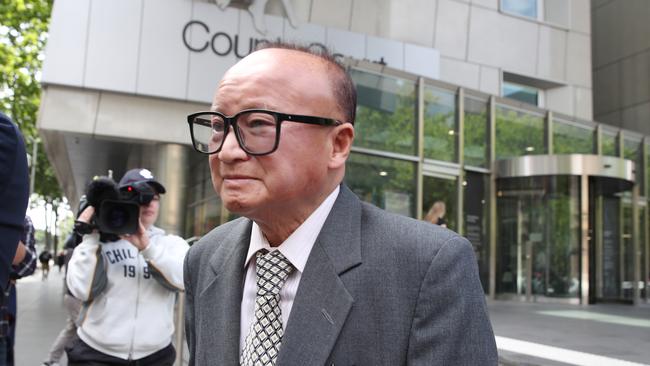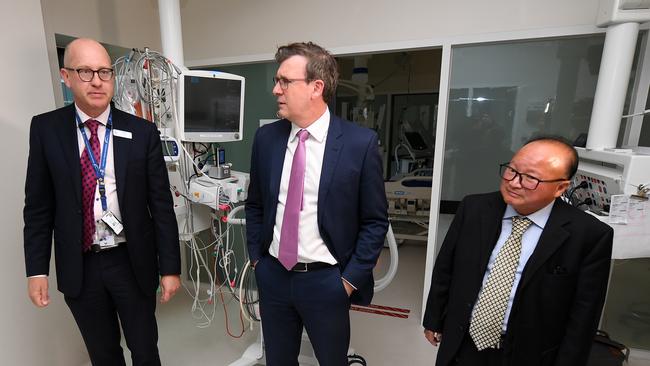Di Sanh Duong trial: Beijing spy targets ‘unaware of roles’
Australia’s foreign interference test case has been told that targets of China’s central intelligence agency could be doing its bidding ‘without ever knowing’.

Australia’s foreign interference test case has been told that targets of China’s central intelligence agency, which focuses on the political systems and affairs of foreign countries, could be doing its bidding “without ever knowing”.
The trial of community leader Di Sanh Duong, who is accused of preparing or planning for an act of foreign interference, on Tuesday heard from an expert witness whose identity is protected.
The witness told the County Court of Victoria about the Ministry of State Security, China’s central intelligence organisation, and the United Front System and its operations.
He said the intelligence agency worked in a “covert and clandestine” way and will present themselves as a government official, academic or journalist when interacting with “targets”.
“United Front work has a global remit and is targeted towards people within China and overseas,” the witness told the jury.
“Chinese community groups and leaders, overseas students … could also be considered potential targets of United Front work.”
The witness told the court that the MSS focused on the affairs of ethnic Chinese communities, anti-Chinese government organisations and the political systems and affairs of foreign countries.
Crown prosecutor Patrick Doyle SC asked the witness what the agency was striving to achieve with its targets.
“Influence them. To build close relationships with them so they operate with guidance of the CCP,” he answered.
When it was deciding on which overseas figures to target, the witness said, MSS would consider whether someone had access to classified information, their relationship to China and whether blackmail could be used against them.
The court was told that the Chinese Communist Party sought to get Chinese community leaders to put out statements in support of its politics and “build relationships with politicians … inside and outside of China”.
Defence barrister Peter Chadwick suggested the tactics MSS used to conceal an agent’s identity were not “confined” to it, citing that the CIA and the KGB could also use similar methods.

“People can be doing the will of MSS without ever knowing,” he put to the witness.
“Those targets may or may not know they’re engaging with an MSS officer.
“The criteria that you put is there are a massive cohort of people around the world who MSS would like to recruit but they’re not necessarily successful.”
The witness said he considered more than 9000 organisations listed in the ministry of civil affairs database were part of the United Front Work’s system.
Former federal minister Alan Tudge appeared to give evidence in the trial on Monday and said he believed a $37,450 hospital donation from Mr Duong – who is accused of having Chinese Communist Party ties – was an “opportunity” to counter negativity towards Chinese people during the pandemic.
The former acting immigration minister told a County Court trial that he had been “concerned” about anxiety and “dangerous” sentiments towards the Australian-Chinese community when he took a meeting with businessman Mr Duong in May 2020.
The trial before judge Richard Maidment continues.






